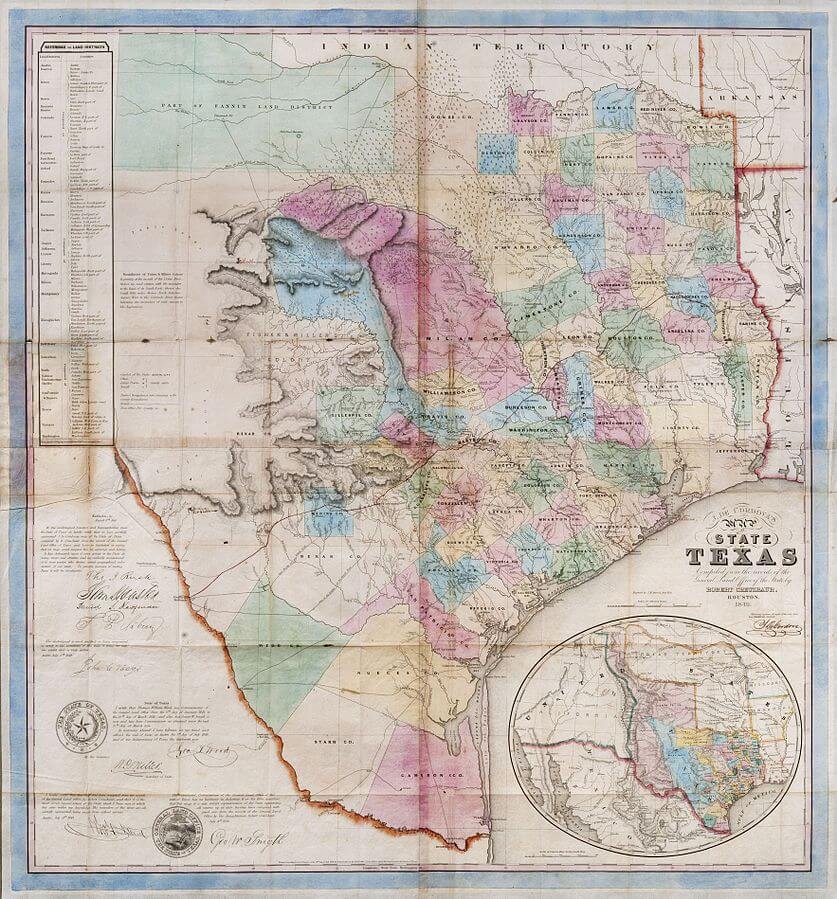In 1968, the State of Texas decided to honor the deeds of Jacob Raphael De Cordova (June 6, 1808 – January 28, 1868) by reinterring De Cordova and his wife from their original burial place in Kimball, Texas, to the State Cemetery of Texas in Austin. De Cordova’s claim to fame resulted from the work he did to promote the settlement of Texas. In the mid-1800s, De Cordova purchased large swaths of land that he sold out in parcels. Most notably, he was one of the key developers of the planned city of Waco and actively brought settlers and businessmen to the city by developing infrastructure and giving concessions.
De Cordova did not start his career as a realtor, nor was he a native of Texas. Born in Spanish Town, Jamaica, De Cordova was raised by an aunt in England after his mother died during his birth. At 17, he rejoined the household of his father, who had moved to Philadelphia. After learning the printing trade (in which his family had been involved with for generations), he returned to Jamaica and started the Kingston Daily Gleaner (a newspaper still in print) with his brother Joshua. Two years later (1836), however, he moved to New Orleans, where he began to trade with the Republic of Texas. He was drawn to the possibilities in what was then an independent territory and moved to Galveston in 1839 and to Houston shortly thereafter.
In Houston, De Cordova got involved in politics. In 1847, he was elected to one term in the Second Texas Legislature. Two years later, in conjunction with Robert Creuzbaur, he created a map of Texas. Through his travels working on this map, he saw the incredible potential of the territory.
In the 1850s, to promote settlement, De Cordova wrote several books and conducted a lecture tour to the northeast and to England. He also started two newspapers. De Cordova’s next project was planning a power project on the Brazos River, but it never developed due to the Civil War. De Cordova died in 1868. When a dam was built in the 1930s, the new reservoir was named in his honor.
This Treat was written in honor of the anniversary of Texas becoming the 28th state of the United States.

Copyright © 2017 NJOP. All rights reserved.
Bibliography
Related Posts
Share The Tale
Tell the Chanukah story to your children, your nieces/nephews, grandchildren or the…
0 Comments1 Minute
Settling Texas
On December 29, 1845, the sovereign nation known as the Republic of Texas became the…
0 Comments2 Minutes
They Came to Texas
From the annals of history, we are often left with the mistaken impression that all…
0 Comments2 Minutes
 Print This Page
Print This Page